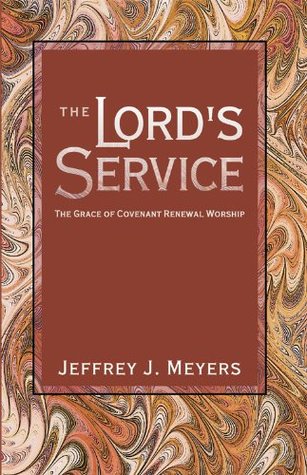More on this book
Community
Kindle Notes & Highlights
Each time God separates out for Himself a people He must both atone for their sin, which is why every post-fall covenant is founded
upon vicarious sacrifice, and He must tear them from their old life and renew them.
(Institutes 4.16.30)
To whom does Paul address this admonition?
I am convinced that in this context (1 Cor. 10–12) the “proof” that a Christian must display is his or her behavior with respect to the unity of the body of Christ and not the performance of introspective self-examination.
As Paul said earlier: one loaf = one body (1 Cor. 10:17).
The
problem in the Corinthian church was that people were misbehaving in the church at large and especially at the Supper—they were both acting and eating in a manner that contradicted the reality of their corporate (corpus is Latin for “body”) unity in Christ.
In other words, 1 Corinthians 11:23–32 must not be
yanked out of the context of the specific troubles in the Corinthian church.
Is the Table only for the strong and intelligent? Are our children not “holy”? Are not all the baptized of the Church “members of the Body” (1 Cor. 12:12). If
If the meal is Holy Communion, and eating at this Table is one of the definitive ways in which God’s Holy people are set apart from the world, then all those
that are holy ought to be included in the meal—including our children!
(1 Cor. 10:17).
One of the
highlights of most of the Old Testament feasts and sacrificial rituals was the covenantal meal shared by the whole community.
Sacraments.
If all the covenantal meals of the Old Covenant are fulfilled in the one covenantal meal of the New Covenant, the Lord’s Supper, and if children partook in the Old Covenant communion meals,
therefore, unless there is some explicit New Testament statement to the contrary, children in the New Covenant ought also to eat with the family at the New Covenant feast, the Lord’s Supper.
The burden of proof lies with those who think that children were excluded from these meals.
When Joshua recited the whole of the Law of Moses to the people, “the entire congregation, with the women, the little ones, and the strangers” gathered and stood to hear the Word of God (Josh. 8:35).
The Westminster Confession of Faith 27.5 reminds us that “the sacraments of the Old Testament, in regard to spiritual things thereby signified and exhibited, were, for substance, the same with those of the New.”
Nehemiah 12:43,
Would the children have had to eat something else?
To read back into the Old Testament the practices of post-New Testament Judaism is always dangerous—so much of the
customs, theology, and ceremony of post-A.D. 70 Judaism was developed in reaction to Christianity and also betrays the influence of alien Hellenistic and pagan ideas and practices that infiltrated Judaism as a result of the dispersion of the Jews from Jerusalem after the destruction of the temple.
After the believing Jews were harvested into the Church during the Apostolic age, and the city of Jerusalem was judged and destroyed by God, the Jews hardened in their opposition to the Chr...
This highlight has been truncated due to consecutive passage length restrictions.
has little or nothing to do with genuine Old Testament I...
This highlight has been truncated due to consecutive passage length restrictions.
why the family is eating
“every man shall take for himself a lamb, according to the house of their fathers, a lamb for a family.”
Circumcision was a sign of being in covenant with God, it was the sign of the righteousness that Israel possessed by faith (Rom. 4:11).
To imagine that the rest of the family ate something else or just watched while the adult men ate the Passover is ludicrous considering the familial, covenantal assumptions of the Old Testament
The Passover is one of the primary typological forerunners to the sacrament of the Lord’s Supper; and there is no evidence in the Old Testament that children were excluded
To even suggest that the children sat there and watched as the parents ate strikes at the heart of God’s covenantal familial relations with His people.
Paul refers to the crossing of the Red Sea as Israel’s baptism and their eating the manna in the wilderness as their Communion meal with Christ, thereby drawing a direct parallel between the spiritual food (food in which the Holy Spirit is present to give life to those who eat) of the Old Covenant (manna
and water) and the Spiritual food of the New Covenant (bread and wine).
The answer is that “all” did—adults and children. What
To suggest
otherwise places the burden of proof on those who would keep children from the table. If
as infants in Christ
I want you to know, brothers, that our fathers were all under the cloud, and all passed through the sea, and
all were baptized into Moses in the cloud and in the sea, and all ate the same Spiritual food, and all drank the same Spiritual drink. For they drank from the spiritual Rock that followed them, and that Rock was Christ.
Because there is one bread, we who are many are one body, for we all partake of one bread.
unpresentable parts are treated with greater modesty,
That we are all “the body of Christ” because of our common Baptism (12:12)
that is designed to signify and seal the unity of the entire body of Christ over against the world.
“You are not really a part of this Body” and even “We’re not sure that you can ever be.”
“Unworthily” (anaxios) is an adverb that modifies the verb “eat.” Paul is not talking about checking to see if you are a worthy person before you come to the Table.
Paul highlights the need for an objective demonstration of one’s behavior with respect to the Body
when


